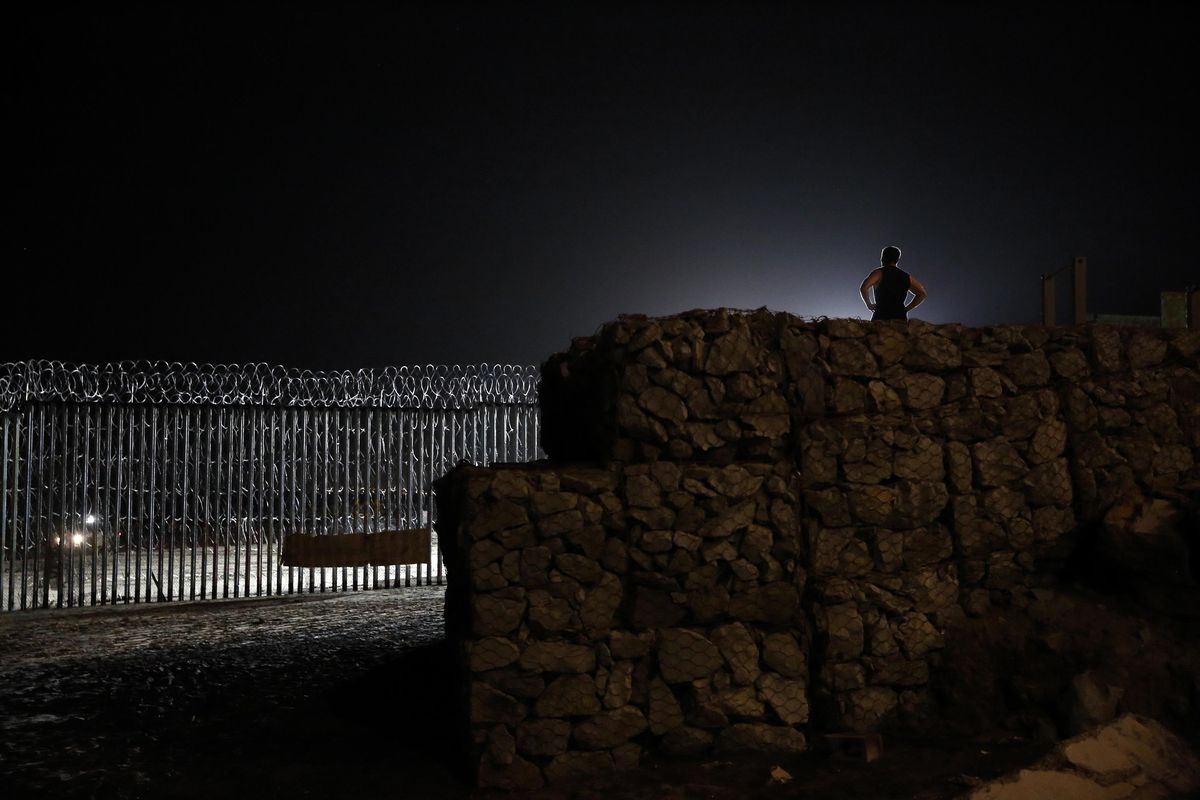Experts say ‘national emergency’ for border wall probably wouldn’t survive legal challenge

It’s unclear how Congress, as a whole, would respond if President Donald Trump declares a national emergency in order to build a wall along the U.S.-Mexico border, an idea he and his advisers began floating on Friday.
Under the National Emergencies Act of 1976, he would have to explain his reasoning for such a declaration with reports from the agencies involved in border security.

“He has to make a formal report to Congress. There are some criteria that need to be met under statutory law,” said Cornell Clayton, a government professor at Washington State University who directs the Thomas S. Foley Institute for Public Policy and Public Service.
“The Congress can also respond to it,” Clayton said, explaining that the House could force the Senate to vote within 15 days on the validity of an emergency declaration. “They can nullify or declare an emergency over by a joint resolution.”
Democrats, who now control the House, have scorned the idea, promising a legal challenge, and continue to blame Trump for the government shutdown now in its third week.
“Last week, President Trump said he could keep the government closed for ‘months or even years,’ but the crisis he started needs to end right away,” U.S. Sen. Patty Murray said in a series of Twitter posts Monday.
The Washington Democrat listed public and private services threatened by the shutdown, including national parks, tribal community programs and nonprofits that assist survivors of domestic violence and sexual assault.
Asked Monday about Trump’s idea to declare a national emergency, a spokesman for U.S. Rep. Cathy McMorris Rodgers offered a two-sentence statement referring to the Obama-era Deferred Action for Childhood Arrivals program, which shielded some young immigrants from deportation before Trump’s Justice Department moved to rescind the program last year.
“The congresswoman’s position hasn’t changed,” the statement read. “Congress needs to reach an agreement to both secure our border and provide certainty for DACA recipients.”
The House, until this month controlled by Republicans, has not voted to restore any version of DACA, leaving the program’s fate in the hands of federal courts.

Legal experts say it would be difficult for the Trump administration to justify cutting into the military budget to fund wall construction along the southern border. With few exceptions, military resources can’t be used to enforce domestic law.
Another legal hurdle involves something called the “zone of twilight.”
Supreme Court Justice Robert Jackson introduced that phrase in an influential 1952 opinion, siding with the court’s majority to stop President Harry Truman from nationalizing steel mills in the face of labor strikes during the Korean War.
Jackson made no attempt to determine which specific powers belong to the president and which belong to the legislative branch. Instead, he focused on the fact that Truman’s seizure of the steel mills directly conflicted with a previous action by Congress.
“Congress had actually passed a resolution saying that the government shouldn’t intervene, but Truman seized the steel mills anyway and declared that it was a national emergency,” said Clayton, the WSU professor.
Jackson laid out three scenarios comparing the actions of Congress and the actions of the president. When the two are in harmony, he wrote, the president’s authority on a given issue is “at its maximum.”
When Congress has been silent on an issue, however, the president “can only rely upon his own independent powers, but there is a zone of twilight in which he and Congress may have concurrent authority, or in which its distribution is uncertain.”
In Jackson’s third scenario, where the president tries to do something Congress has opted not to do, his power is “at its lowest ebb.”
“When the president takes measures incompatible with the expressed or implied will of Congress, his power is at its lowest ebb, for then he can rely only upon his own constitutional powers minus any constitutional powers of Congress over the matter,” Jackson wrote. “Courts can sustain exclusive presidential control in such a case only by disabling the Congress from acting upon the subject.”
Jackson did not write for the majority in the steel mill case, only a concurring opinion. But he established the framework that many legal scholars still use to assess presidential power.
Clayton said that might be unwelcome news for Trump, because Congress already has turned down his demands for wall funding.
“In the current circumstances, it seems to me that if the president tried to declare an emergency to build a wall, it would fall under that third category of Justice Jackson’s analysis of presidential power,” Clayton said.
“Who knows? I’ve given up trying to predict what Donald Trump will do,” Clayton said. “I think any reasonable president would not go down this road because they’re likely to lose.”